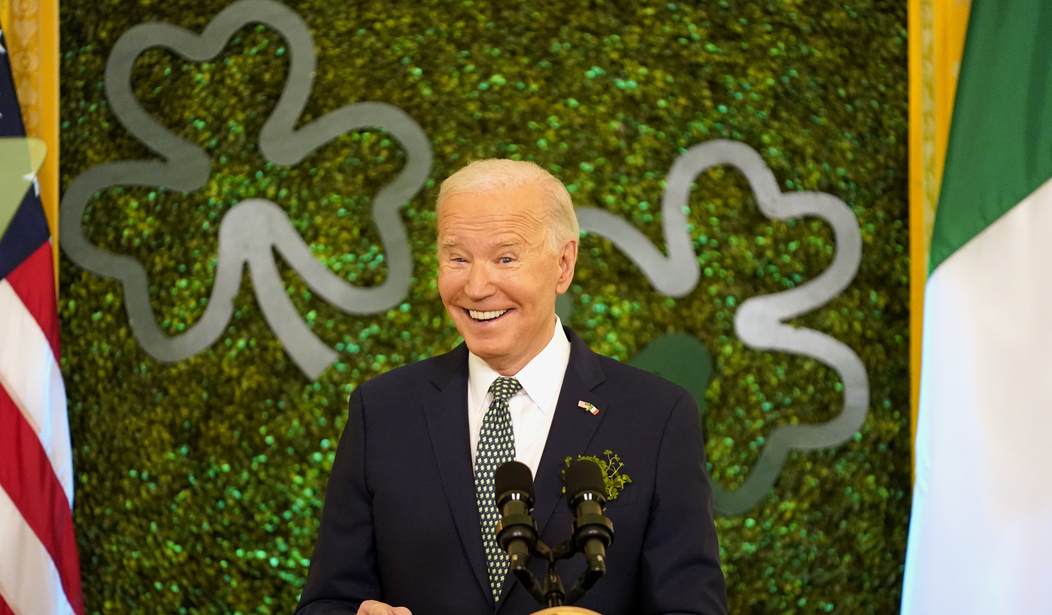The good people of Ireland have been gifted by their state a gift they never knew they needed: a brand-new diverse commissar equipped with brand-new government authority to lecture them about their unmitigated deplorable racism or whatever so that they can learn to act right and stop being so racist that they allow Nigerian migrants to move to their country and earn a publicly-subsidized salary to tell them how irredeemably racist they are.
Related: Germany: Violent Migrant Crime Hit Record High in 2023
Via RTE (emphasis added)
The Government has announced Dr Ebun Joseph as Special Rapporteur for the National Plan Against Racism (NAPAR) which was published over a year ago.
Dr Joseph is a Nigerian-Irish lecturer, who founded the first Black Studies University module in Ireland.
She will chair an Advisory Group on Racism and Racial Equality, which will facilitate evidence-based implementation of the action plan.
The National Plan Against Racism aims to make Ireland a place in which the impacts of racism are fully acknowledged and actively addressed.
The advisory group will assist in the ongoing implementation of the plan.
In her role as Special Rapporteur, Dr Joseph will monitor progress towards the objectives of the NAPAR.
The Special Rapporteur may also consider matters pertaining to racial equality more broadly, and will have the authority to request information and data from public bodies to support them in carrying out the role.
The hyphen-happy social engineers like to play fast and loose with national identity. Ebun is a Nigerian who moved to Ireland in 2002 at the age of 32.
Via Wikipedia (emphasis added):
She was born Ebun Joseph Arogundade in Benin City, Nigeria in 1970 to Joseph and Grace Arogundade. She has six siblings. Her father Chief Arogundade from Okpe was a politician, and a former commissioner for education and finance. She has two sons, and lives in Dublin. She holds both Nigerian and Irish citizenship…
Ebun Joseph first trained as a microbiologist at the University of Benin. She went on to work as the Administrative Secretary for the Nigerian Britain Association before emigrating to Ireland in 2002.
Here is Ebun explaining Irish racism to the Irish in her unmistakably Irish accent.
The historical justification often cited for displacing the native populations of the West is that European peoples ravaged the Earth for centuries past, subjugating the indigenous populations of Africa and the Americas and Asians into white supremacist colonial rule.
While there are many bitter ironies about the Social Justice™ ideologues conquering what the British Empire, with its vast armies and armada, tried and failed to conquer for centuries, perhaps the most notable is that Ireland, alone among Western European nations, has no colonial legacy whatsoever and, in fact, was subjugated by the British itself for all those years, from whence myriad Irish fight songs have emerged.
Yet, somehow, Ireland’s liberal media — which is just as bad and perhaps worse than America’s — has managed to turn the island nation’s unending suffering and centuries of subjugated status into a history of itself inflicting white supremacy and oppression on others.
Via The Irish Times, “Ireland has yet to come to terms with its imperial past” (emphasis added):
Ireland was England’s first colony. We lived as part of the English, and then British, Empire for over 700 years. The Normans first conquered Ireland in 1169 and aside from a brief decade of independence during the 1640s Ireland formed an integral part of the English imperial system, until 1922 and the foundation of modern state. As well as being colonised the Irish operated as active colonists in the empires of Britain and other European powers…
Over these centuries, Ireland also served as laboratory both for imperial rule and for resistance to that rule. Structures, policies and ethnocentric ideologies were first formulated in colonial Ireland and later transferred to other parts of the British empire. This included modes and structures of governance; policies and practices associated with Anglicisation, especially the promotion of English culture, language, religion, and education; the law, particularly as it related to the use of land and other natural resources; and, finally, knowledge collection.










